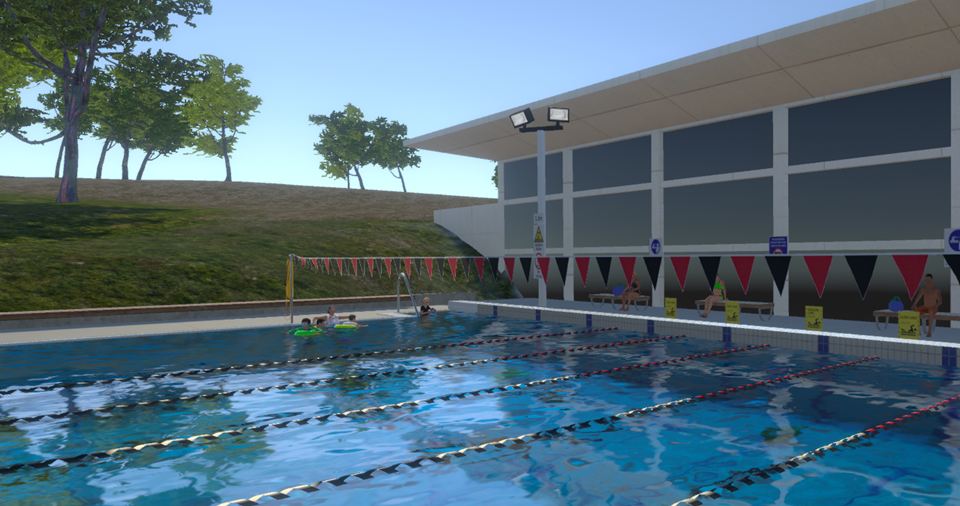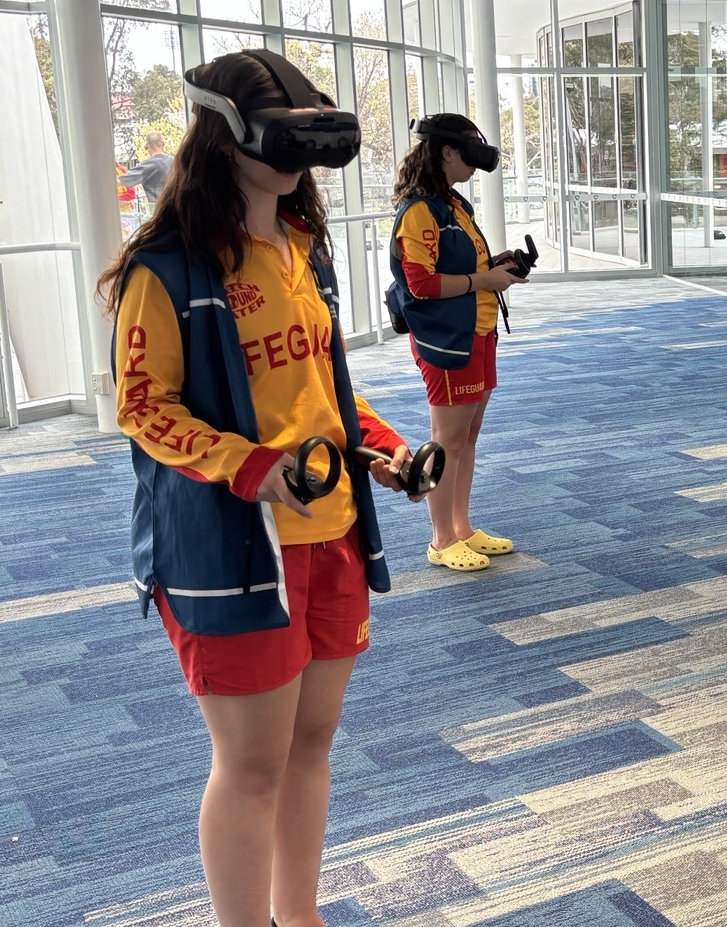
Published: 21 October 2025
Innovation Meets Lifesaving at the Life Saving Victoria Pool Lifeguard Challenge
Each year, the Life Saving Victoria Pool Lifeguard Challenge brings together teams from across the state to put their skills, teamwork and composure to the test in a series of high-pressure lifeguard scenarios. The event builds camaraderie, highlights excellence, and brings out the best in the next generation of industry leaders.
But this year, one scenario looked a little different.
Through a collaboration between Life Saving Victoria, Royal Life Saving Australia and Macquarie University, competitors had the opportunity to test their observation skills in a virtual pool environment.
The immersive simulation placed participants in the role of a lifeguard at a busy public pool, where they completed three exercises testing their scanning, observation and decision-making skills. The virtual environment replicated the sound, movement and distractions of a real aquatic facility, providing a safe but realistic setting to test and refine lifeguard scanning skills.
Professor Mark Wiggins, project lead at Macquarie University, said the collaboration demonstrates the potential of technology to enhance lifeguarding practice. “By replicating the sensory load of a real pool environment, we can better understand how lifeguards perceive and respond to activity in their zone, and how training can improve focus and reaction times,” he said.
Shaun Jackson, National Manager – Training and Workforce Development at Royal Life Saving Australia, said the partnership highlights the value of innovation in workforce development. “We know that supervision and scanning skills often receive less practical training time in contrast to rescues and aftercare. This project shows how virtual reality can help to bridge the gap between classroom theory and real-world application. It’s a tool that both challenges and empowers lifeguards to reflect on their skills and perform at their best,” he said.

Life Saving Victoria’s Senior Manager – Aquatic Industry Services, Alek Olszewski, said the VR experience was a standout addition to the annual Lifeguard Challenge event. “The realism and intensity of the simulation pushed participants to really call on their scanning and observation skills. It was great to see so many young and dedicated lifeguards take part in the event and the VR challenge sparked great discussion among teams about how scanning techniques play out in the real world,” he said.
The 2025 Pool Lifeguard Challenge is a great example of organisations coming together to lift industry standards, compete in a fun and friendly environment, and develop the next wave of industry leaders. It also marked a significant step forward in how technology can be used to enhance safety, performance and professional learning across the aquatic industry.
